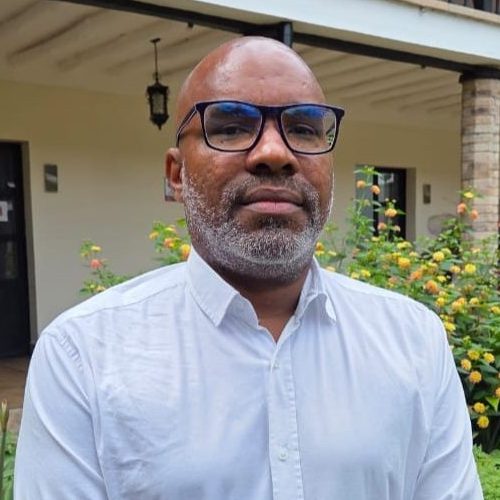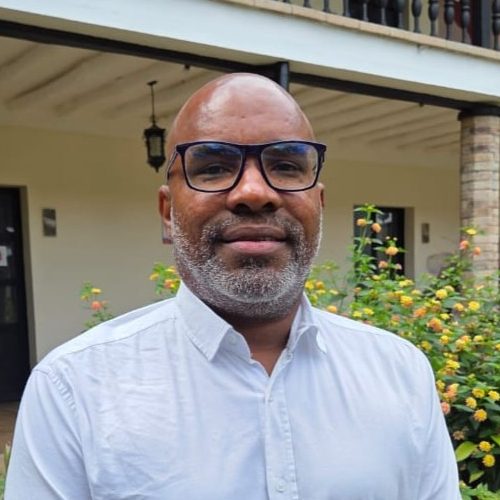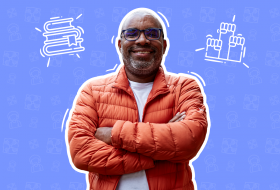News
Memory, education, and dignity! Let’s discover an inspiring story of Afro-Colombian identity at the U
On such a significant day as May 21st, when we commemorate Afro-Colombian Identity Day, the University of Cauca reaffirms its commitment to intercultural and anti-racist education; a date that not only invites reflection but also calls us to celebrate and learn from those who have tirelessly fought for the dignity and rights of Afro-descendant peoples. Precisely within the framework of this commemoration, we want to share the story of professor, researcher, and activist José Antonio Caicedo Ortíz, a talented Unicaucano who has dedicated his life to building bridges toward inclusive education.
This day is not just a date on the calendar; it is a powerful reminder of the legal abolition of slavery in Colombia in 1851, a milestone decreed by President José Hilario López. Law 725 of 2001 officially established this day as a commemoration that invites us to look back and recognize the historic struggles, as well as the valuable cultural, intellectual, and political contributions that Afro-descendant peoples have made to our nation. However, it also confronts us with the challenges that still persist on the path toward the full realization of their rights.
Within this transformative context, the University of Cauca highlights the work of professor José Antonio Caicedo Ortíz. A sociologist and master’s degree holder in Intercultural Studies, his passion for teaching is felt in every corner of the Department of Intercultural Studies. As a member of the Center for Ethnic Memories and coordinator of the Rogerio Velásquez Murillo Afro-Colombian Chair, his career is marked by a firm commitment to teacher training in ethnoeducation and the creation of curricular proposals that foster respect and inclusion.

Provided photo
"The Commemoration of Afro-Colombian Identity is a date to remember the collective and contemporary agendas of the peoples of the African diaspora in Colombia. It is a time to recall political, intellectual, aesthetic, individual, and collective activism as Afro-descendants, and to contribute to generating a culture of peace from the vision and memories of Afro-Colombian peoples to the nation. It is also a reminder that material gaps and the lack of full rights for Afro-Colombian people remain an urgent task to achieve a full, multiethnic, and intercultural democracy," said professor José Antonio.
Under his visionary leadership, Unicauca has been a pioneer in systematically implementing the Afro-Colombian Chair in higher education. Nearly five thousand students have had the privilege to participate in these enriching academic spaces through the Comprehensive Training Program in Society and Humanism (FISH), both in Popayán and Santander de Quilichao — impressive and inspiring, right? Likewise, the Bachelor’s Degree in Ethnoeducation has been another fundamental pillar since 2008, training teachers committed to Black communities and promoting an intercultural approach that respects our roots: quite a challenge but perfectly relevant to the context we live in!
Regarding this, professor José Antonio emphasizes that “In the comprehensive training of university students, it is essential to know the cultural, intellectual, and political memory of the Colombian nation. To know its history through the study of Afro-Colombian heritage regardless of the professional, technical, or technological training field. It is necessary for all students to know Afro-Colombian legacies as a tangible and intangible heritage that enriches their knowledge and offers them a plural vision of the world. Afro-Colombian identity must be understood through the lens of dignity to respect and value it.”

Provided photo
Thus, as we remember Afro-Colombian Identity Day, this institution that is #HeritageForAll reiterates its unwavering commitment to anti-racist education that strengthens the dignity of Afro-descendant peoples. This celebration is not just symbolic; it is an opportunity to critically examine the structures that perpetuate racism and exclusion. From our academic institution, we take on the responsibility to transform our culture toward a democratic coexistence where diversity is a core value.
It is clear, then, that for the Alma Mater of Cauca, teaching the Afro-Colombian legacy must be permanently integrated into our educational spaces; it cannot be marginal or sporadic but must be a fundamental part of the educational fabric with which we shape generations capable of understanding our history honestly, respecting our differences, and working together for a more just, equitable, and peaceful society. That is the challenge: to keep moving forward together toward a tomorrow where every voice is heard and every story becomes memory. Stories like that of our protagonist professor remind us that every action counts: we are agents of change with the #UnicaucaSeal.
Written by: Center for Communication Management


